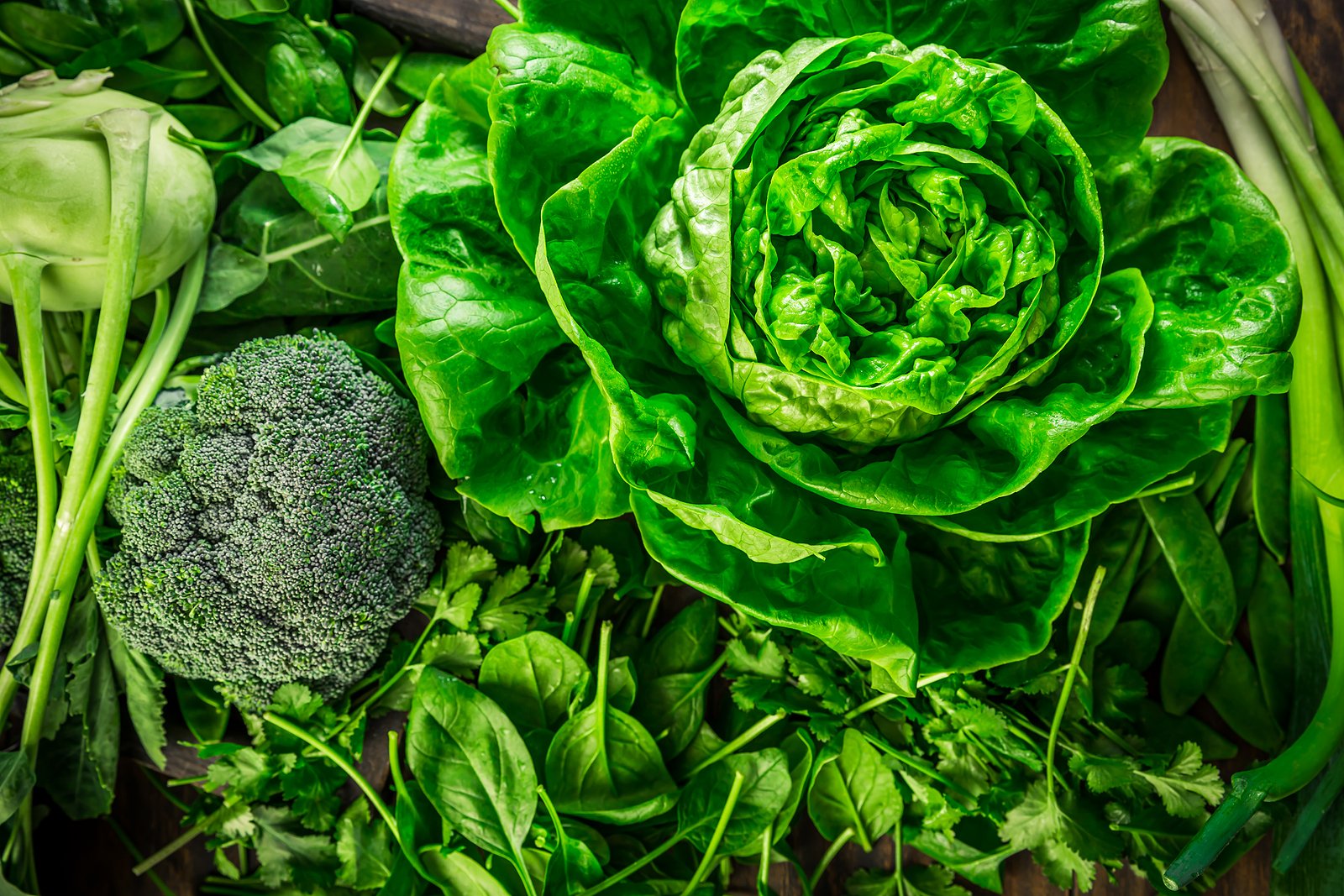
Throughout our whole life we are told to eat our greens. Everyone associates green foods with health, but few people can probably explain why greens are so vital to our everyday nutrient needs. The USDA recommends incorporating 1.5-2 cups of fruit per day and 2-3 cups of vegetables per day and here is why:
- Green vegetables are high in fiber which is very important as many Americans lack adequate fiber intake. The recommended RDA is 25 g/day for women and 38 g/day for men. Fiber is great because it works like a scrub brush in the body, helping to lower cholesterol levels and prevent constipation. For those with diabetes, it also helps regulate blood sugar levels. 5 or more grams of fiber in a single serving is considered an excellent source of fiber but be careful not to introduce fiber too quickly into a diet as it may cause cramping, bloating, and gas.
- Green vegetables are rich in a variety of nutrients, including iron, Vitamin A, Vitamin C, and Vitamin E. These vitamins are great antioxidants and can help boost your immune system as they fight cell-damaging free radicals. Additionally, green leafy vegetables are a great source of iron for those who do not eat meat. Iron prevents anemia, treats fatigue, and boosts immunity.
- Dark greens are one of the best protective foods against cancer. Given their high antioxidant content and abundance of folate, they can block the early stages of cancer and decrease the risk of certain cancers from developing. Several large studies have shown that increased folate can lower the risk of colon polyps by 30-40 percent. Diets low in folate may increase risk of breast, cervix, and lung cancer.
- Lastly, green vegetables are a great food to incorporate into your diet if you are at risk for heart disease. It is a low calorie, low carbohydrate, and low sodium food. As mentioned above, it is also high in fiber which reduces levels of bad cholesterol and helps us feel fuller longer. Foods that keep us full reduce snacks between meal-time and can reduce weight gain. Green vegetables are also high in vitamin K, which is preventative against inflammatory diseases. Per the American Heart Association, Vitamin K intake has been shown to lower risk of hospitalizations from cardiovascular disease.
Getting the recommended 2-3 cups of vegetables in per day may seem like a daunting task, but there are many ways to sneak vegetables into your daily intake. Aim to have at least 1 side salad a day with lunch or dinner. This can easily provide at least 2 cups of vegetables. You can also sneak vegetables into your morning omelets, smoothies, soups, or stir fries.










